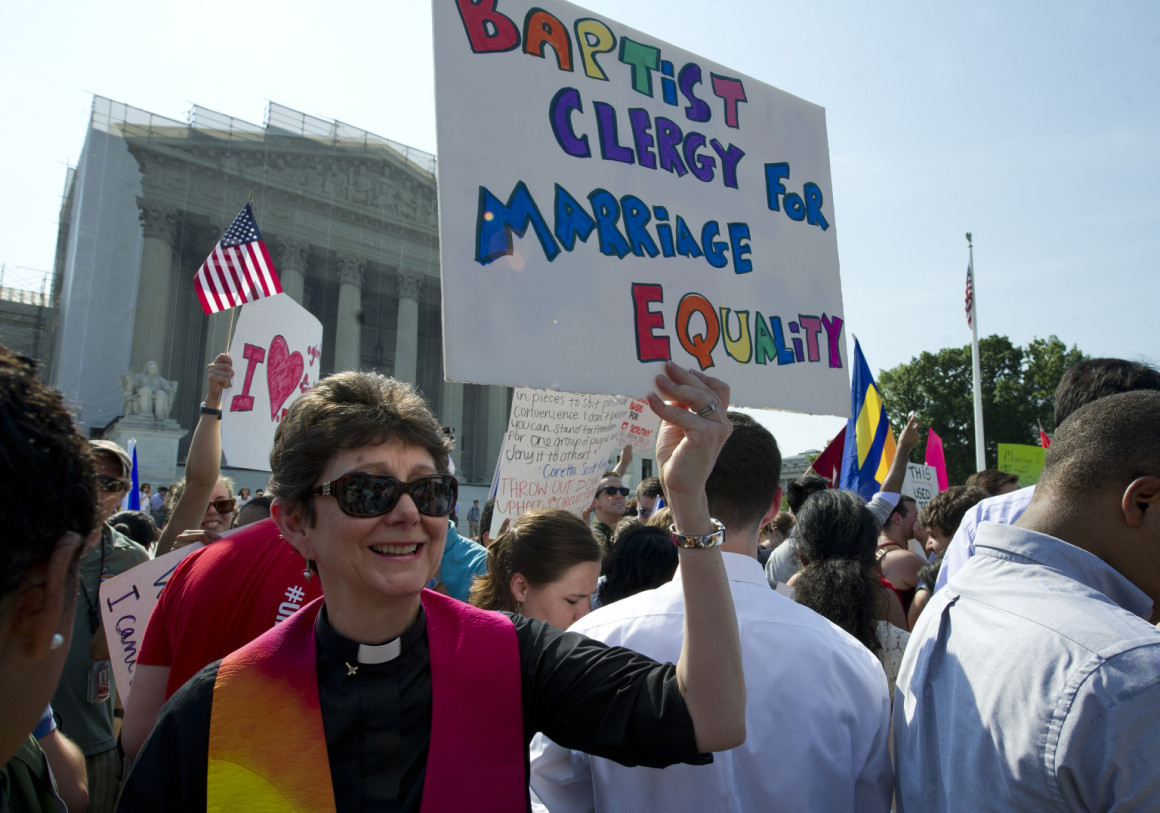
Clergy Who Oppose Same Sex Marriage Should No Longer Get to Be Government Agents
 “People say that marriage is broken, or that marriage is up-for-grabs. Neither is true. Actually, there are two marriages in America.” –Tony Jones
“People say that marriage is broken, or that marriage is up-for-grabs. Neither is true. Actually, there are two marriages in America.” –Tony Jones
Earlier today, in an online conversation about the possibility of clergy being forced to marry same sex couples against their will due to the recent SCOTUS ruling legalizing same sex marriage (SSM), I basically got the old Evangelical “farewell Rob Bell” dismissal for suggesting that those clergy who oppose SSM should simply not get to be agents of the State anymore.
It seemed like a simple and obvious solution to me because when I began reflecting on this topic I thought back to Tony Jones’ helpful observation that there really are two marriages in America: Legal Marriage and Sacramental Marriage.
Those clergy who insist on discriminating against same sex couples for theological reasons should not necessarily be forced to perform a Sacramental Wedding, BUT they should NOT get to be licensed/authorized/sanctioned by the State to perform the legal side of marriage anymore. This wouldn’t necessarily stop them from performing the sacramental side of marriage (and therefore wouldn’t violate any 1st amendment sensibilities), but it would mean that those couples married by those clergy people, who insists on discriminating, would have to seek out a government representative to complete the legal side of the marriage in order to gain government benefits, i.e. they would need someone who IS authorized by the State to sign the marriage certificate.
In my hypothetical scenario, those clergy people who affirm SSM, and are happy to wed same sex couples, would be given license/authorization/sanction to continue acting as government agents if they wish, and be able to perform both sides (sacramental and legal) of the marriage as usual.
On the other hand, though, considering the beloved “separation of church and state” ideology that Americans hold dear, one could rightly ask the question, “why the heck are religious clergy people serving as agents of the State to begin with?” I’d actually be fine with the Church getting out (or being forced out) of the marriage game altogether, but on the other, other hand I do have issues with this idea that there are these two distinct entities, one called “secular culture” and one called “The Church.” The idea that these two entities are clean and demarcated and don’t influence each other, seems more than a little dubious to me. It’s probably more likely that “The Church” and “secular culture” have always evolved together and will continue to do so.
0 Comments